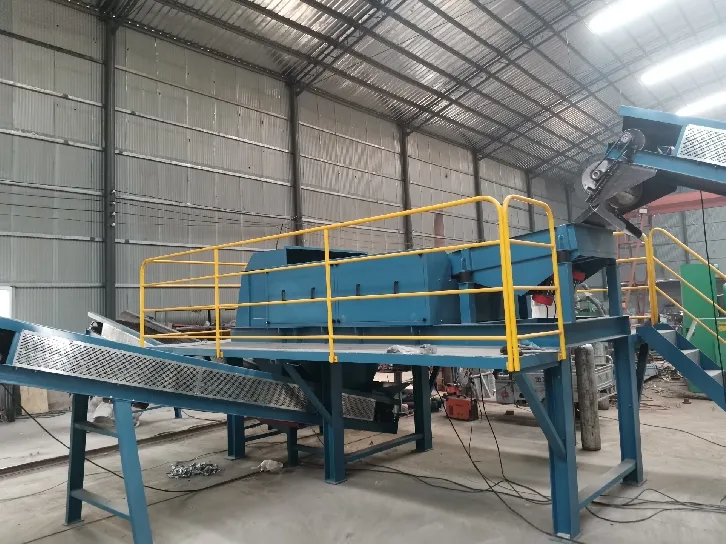

Jul . 30, 2024 04:07 Back to list
The Importance of Scrap Processing Plants in Modern Industry
In today's rapidly evolving industrial landscape, the sustainable management of resources has become paramount. One of the critical components of this paradigm shift is the role of scrap processing plants. These facilities operate at the nexus of waste management and resource recovery, transforming discarded materials into valuable resources while mitigating the environmental impact of industrial operations.
A scrap processing plant specializes in the collection, sorting, and processing of scrap materials, which can include metals, plastics, paper, and electronic waste. The primary goal of these plants is to recycle materials that would otherwise be sent to landfills, reducing the volume of waste and conserving natural resources. For instance, recycling metals such as iron, aluminum, and copper not only helps preserve the earth's finite mineral resources but also requires significantly less energy compared to extracting and refining raw materials. This energy conservation translates into lower greenhouse gas emissions, positioning scrap processing as a crucial player in the fight against climate change.
The operational mechanics of a scrap processing plant involve several stages. Initially, scrap materials are collected from various sources—industrial operations, construction sites, and even household waste. Once collected, these materials are sorted based on their type and grade. Modern scrap processing plants utilize advanced technologies such as conveyor systems, magnetic separators, and shredders to ensure that the sorting process is efficient and effective. Once sorted, the materials are processed into bales, sheets, or granules, making them easier to transport to manufacturers who will reuse these materials in their production processes.

One of the most significant advantages of scrap processing plants is their contribution to the circular economy. In a traditional linear economy, resources are extracted, used, and disposed of, creating a significant waste stream. In contrast, a circular economy focuses on extending the lifecycle of materials through recycling and repurposing. Scrap processing plants facilitate this transition by providing the infrastructure necessary to turn waste into new products. This not only reduces the environmental footprint of industrial activities but also supports local economies by creating jobs in the recycling sector.
Furthermore, scrap processing plants can play an essential role in complying with regulatory requirements concerning waste management. Many governments have imposed stricter laws on waste disposal and recycling, pushing industries to seek out sustainable practices. By partnering with scrap processing facilities, companies can ensure that they are meeting these regulations while simultaneously enhancing their corporate social responsibility profiles.
Despite the clear benefits of scrap processing plants, the industry faces challenges. The fluctuating global prices of recycled materials can impact the profitability of these operations, while contamination in scrap materials can complicate the recycling process. The need for public awareness and engagement in recycling practices is also vital. Educating communities about properly sorting and disposing of scrap can significantly enhance the efficiency of processing plants.
In conclusion, scrap processing plants are essential to modern industry, playing a crucial role in resource recovery and environmental sustainability. By transforming waste into valuable materials, these facilities not only contribute to economic growth but also support the transition toward a more sustainable future. As industries continue to recognize the importance of responsible resource management, the role of scrap processing plants will only become more crucial, helping to pave the way for a circular economy that benefits both the planet and its inhabitants.
Latest news
Troubleshooting Common Eddy Separator Problems
NewsJul.04,2025
The Role of Metal Recycling Plants in Circular Economy
NewsJul.04,2025
The Impact of Recycling Line Pickers on Waste Management Costs
NewsJul.04,2025
Safety Features Every Metal Shredder Should Have
NewsJul.04,2025
How Industrial Shredders Improve Waste Management Systems
NewsJul.04,2025
How Cable Granulators Contribute to Sustainable Recycling
NewsJul.04,2025